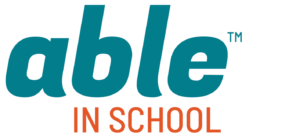Research
At TNT Kid’s Fitness, we are proud to have facilitated research conducted at our facility. ABLE in School is committed to advancing knowledge and innovation in inclusive fitness and education. Explore our research articles below to learn about the impact of structured exercise programs on quality of life for adults with disabilities and the development of community partnerships to enrich pediatric physical therapy education through experiential learning. These studies reflect our dedication to promoting inclusivity, improving outcomes, and driving positive change in the field of fitness and education.
Effectiveness of Physical Activity in Relation to the Quality of Life for Individuals with Disabilities
By: Sarah M. Bowers, Kelly M. Hutchins, Trisa Hutchinson, Brock Kolander, Averi Olson, & Casandra Shorma
Purpose: Adults with disabilities often face challenges meeting the recommended guidelines for physical activity, impacting their occupational engagement and quality of life (QoL). This study investigated the effects of a 6-week exercise program on timed-repetition-maximum in specific
exercises and QoL of adults with disabilities.
Methods: A quasi-experimental design was used to collect data from 10 adults with disabilities, measuring the impact of a 6-week exercise training program on QoL. Physical activity was measured utilizing a timed-repetition-maximum test of four different exercises. Exercises were chosen by researchers to correlate with functional movement needed for daily occupations. QoL was measured using the Physical and Psychosocial Domains of the World Health Organization Quality of Life Scale-Disabilities (WHOQOL-DIS).
Results: A positive correlation was present between the 6-week exercise program and timed-repetition-maximum, as well as QoL. Results from all areas measured showed increases from the pre-test to the post-test.
Conclusion: The results of the present study suggest that participation in a structured physical
fitness program can positively impact QoL for adults with disabilities.
Enhancing Pediatric Education for Physical Therapy Students Through the Development of Community Partnership to Facilitate Experiential Learning: A Case report
By: Mitch Wolden, PT, DPT, PhD, and Brittany Anderson, PT, DPT
Background and Purpose: Doctoral physical therapy (DPT) programs are expected to provide students with educational experiences in classroom and in clinical settings and with all age demographics, including pediatrics. There is significant discrepancy in the delivery and assessment of pediatric content in DPT programs. One effective and evidence based strategy to address this discrepancy and deliver pediatric content is experiential learning (EL). Our case report illustrates how EL with a symbiotic community partner can enable DPT programs to effectively address the current limitations in direct contact hours and clinical experiences in pediatrics.
Case Description: We formed a structured and formal partnership with a local community fitness and gymnastics facility to provide our students with pediatric EL opportunities outside of the classroom and traditional clinic settings. Each student is required to engage in structured and focused play-based interactions with typically and atypically developing children 1 hour per week for two 8-week EL periods under direct supervision of a certified pediatric clinical specialist.
Outcomes: Students demonstrated appropriate professional behaviors, increased self-efficacy, achievement of the pediatric course learning objectives, and attainment of 3 Academy of Pediatric Physical Therapy essential core competencies. With our community partner, 87% of the children demonstrated improvement in their gross motor skills.
Discussion and Conclusion: Our case report details an innovative approach to use EL to increase the number of direct contact hours with the pediatric population through a symbiotic community partnerships that positions our students to reach entry-level competency with the pediatric population upon graduation.

